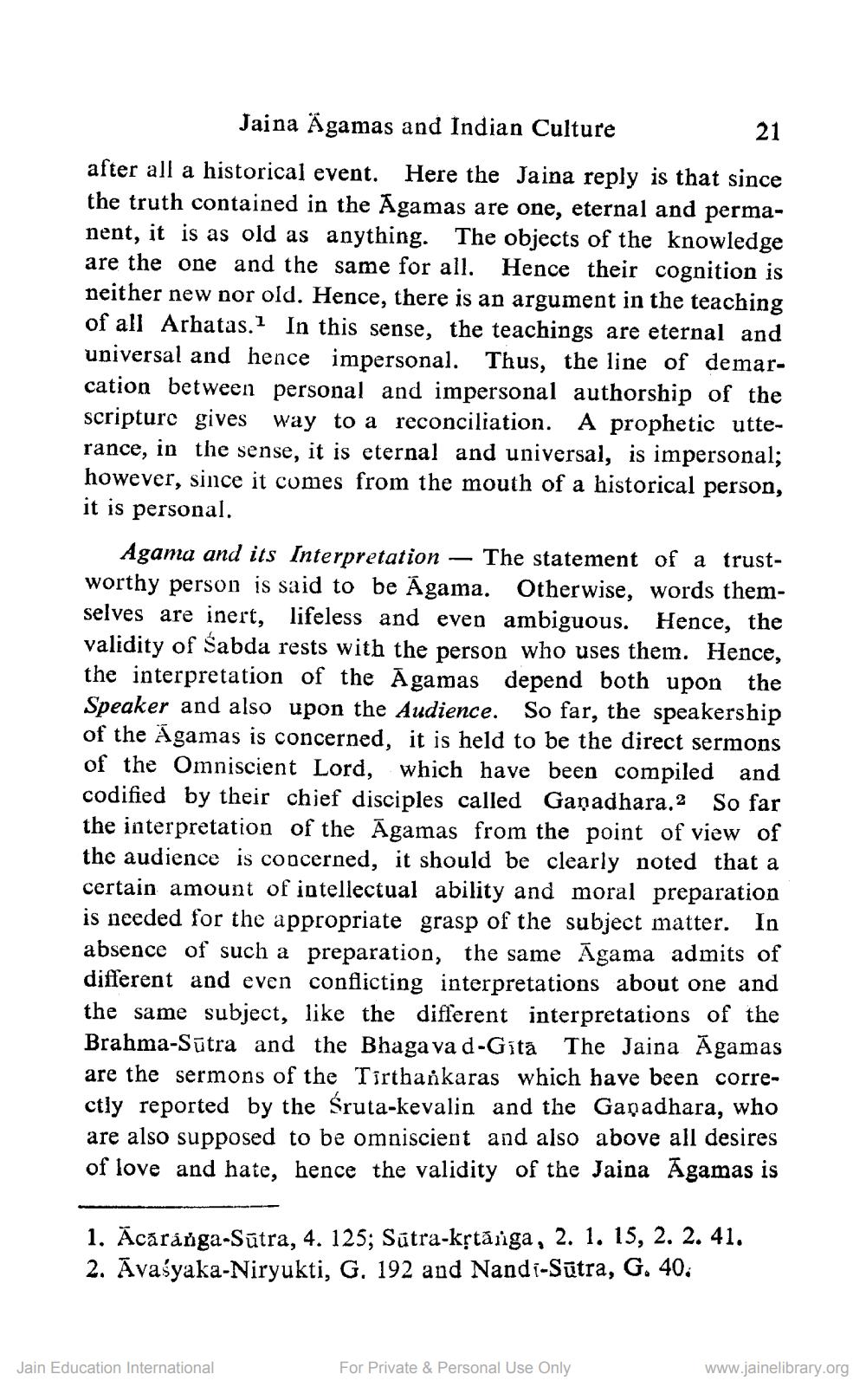________________
Jaina Ägamas and Indian Culture
21 after all a historical event. Here the Jaina reply is that since the truth contained in the Agamas are one, eternal and permanent, it is as old as anything. The objects of the knowledge are the one and the same for all. Hence their cognition is neither new nor old. Hence, there is an argument in the teaching of all Arbatas. In this sense, the teachings are eternal and universal and hence impersonal. Thus, the line of demarcation between personal and impersonal authorship of the scripture gives way to a reconciliation. A prophetic utterance, in the sense, it is eternal and universal, is impersonal; however, since it comes from the mouth of a historical person, it is personal.
Agama and its Interpretation – The statement of a trustworthy person is said to be Āgama. Otherwise, words themselves are inert, lifeless and even ambiguous. Hence, the validity of Sabda rests with the person who uses them. Hence, the interpretation of the Agamas depend both upon the Speaker and also upon the Audience. So far, the speakership of the Agamas is concerned, it is held to be the direct sermons of the Omniscient Lord, which have been compiled and codified by their chief disciples called Ganadhara.2 So far the interpretation of the Āgamas from the point of view of the audience is concerned, it should be clearly noted that a certain amount of intellectual ability and moral preparation is needed for the appropriate grasp of the subject matter. In absence of such a preparation, the same Āgama admits of different and even conflicting interpretations about one and the same subject, like the different interpretations of the Brahma-Sūtra and the Bhagavad-Gītā The Jaina Āgamas are the sermons of the Tirthankaras which have been correctly reported by the Śruta-kevalin and the Gapadhara, who are also supposed to be omniscient and also above all desires of love and hate, hence the validity of the Jaina Āgamas is
1. Ācāranga-Sūtra, 4. 125; Sutra-kştājiga, 2. 1. 15, 2. 2. 41. 2. Āvasyaka-Niryukti, G. 192 and Nandi-Sūtra, G. 40.
www.jainelibrary.org
Jain Education International
For Private & Personal Use Only




